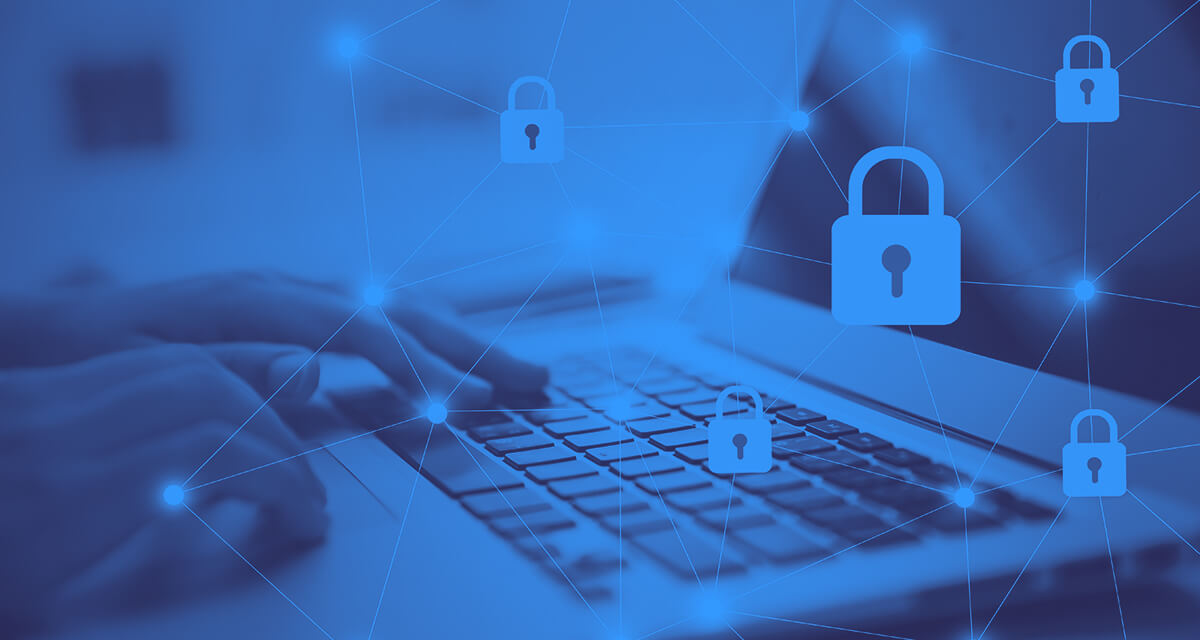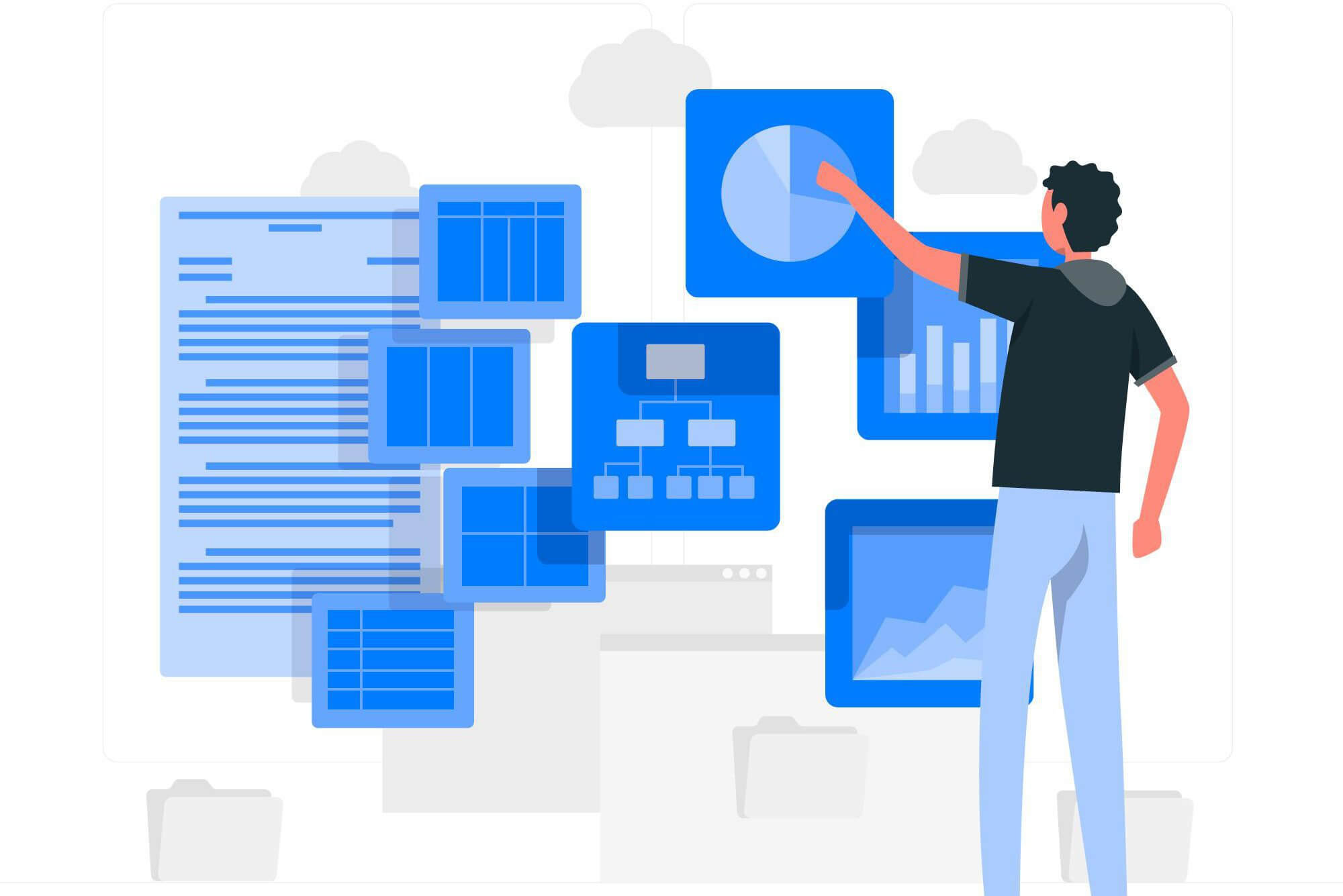Most companies transfer data to be stored in the cloud to increase convenience. However, one can keep wondering how safe the data stored in a cloud is. After all, losing a good chunk of company information can cause huge losses and trouble.
SaaS security also has several other concerns that you should worry about too. Identity theft, data access risk, and information hacking and control are just some of them. Data breaches have become increasingly evident due to the Covid-19 pandemic as most organizations started operating from home.
If you wish to learn more about SaaS security risks, what these are, and major issues related to SaaS (Software as a Service) subscriptions, you are in the right spot.
What Are Cloud Security Threats?
Cloud security threats or issues arise when data is hosted on cloud apps that make use of solely the Internet to stay functioning. Issues include identity theft, unauthorized access, and confidential company/business data leakage. Cybercriminals or hackers use illegal ways and activities to acquire a wide range of criminal benefits through cloud security failures.
SaaS Security Statistics
- Around the 4th quarter of 2019, most companies had already started adapting to digital transformation.
- The Covid-19 pandemic caused companies to adapt faster, starting from the 1st quarter of 2020.
- The increased risk of a full shutdown caused SaaS security trust to increase. Secure web gateways also started becoming quickly popular.
- Zscaler, a popular SaaS security provider, grew by 200% from the last quarter of 2019 to the 1st quarter of 2020. This growth coincided with the growth experienced by Microsoft Teams and Zoom.
- Even though the security fear has greatly reduced and many large companies are allowing work from home and promoting remote jobs, it is still a good idea to be aware of SaaS concerns and risks before jumping into the bandwagon.
SaaS Security Concerns
Let us now look at 10 top SaaS security risks and concerns all users should be aware of and vigilant about:
Stability And Reliability
Reliable SaaS apps should not only be stable but extremely secure. SaaS vendor services are quickly becoming popular by the day. This means users have a wide array of options to choose from with various quality services that they can opt for.
On the other hand, increased competition puts excess pressure on all providers. Since every service has a different budget, some may be able to grow while others may end up closing down due to being unable to compete.
Therefore, it is also necessary to research and be aware before you subscribe to any cloud service provider. If a company does shut down immediately and you are subscribed to the service, you will be faced with data portability issues.
This is important to address as any money and time you input into the service will go to waste along with critical data that can lead to loss and may be impossible to recover. Most companies will have to take risks, but this is something that can happen, and you should be prepared.
Since it is impossible to truly predict a situation like this, you need to take other actions to keep data safe if your SaaS provider faces hurdles, issues, server/network problems, or decides to shut down. Though shutdowns are not dramatic, changes in security/pricing policies will surely occur.
Always read the policies before subscribing to prevent data leaks and know how data will be handled or protected if the SaaS company goes out of business.
Data Access Threats
Letting a third party handle critical business information and sensitive data is risky. You need to know who will be allowed access to your data once you subscribe.
Even the most popular and top names are not safe from cybercriminals. Hackers are always waiting for a chance to attack and steal information for illegal benefits. Plus, the more popular your own company or a SaaS company is, the more valuable the data will be.
Before opting for any SaaS vendor, make sure you can discuss, review and go over security policies with the vendor. The best way to stay safe and secure is to know and allow who gets access to your data and who does not. Also, ensure they have a good security team.
All SaaS providers must provide proper Terms of Agreement with no hidden policies or rules. Read the entire terms before signing to prevent yourself from getting bound by policies you do not agree to. If you do not understand a privacy policy or have queries, or confusion, always reach out to the SaaS company to gain sufficient knowledge regarding the technical side of things.
Being involved lets you know how much company data will be hosted on the vendor’s servers and what risks you are willing to take. If you find that a SaaS service is not as suitable, you should consider other options.
Identity Theft
SaaS service providers offer a variety of packages on their websites that can easily be purchased through credit cards. This can also be done remotely from the comfort of your home.
Although this mode of payment and service acquisition seems convenient, it has a lot of potential risks. One major concern is identity theft. 2015 had an alarming rate of such cases, which died down but again picked up speed during the Covid-19 era.
Although you can invest in an identity access management solution with multi-factor authentication if required, most businesses use a firewall to protect themselves, which is truly not enough.
Identity theft can only be prevented using multiple proper security tools and additional software. You may need to pay for extra services to keep your credit card information and credentials safe.
Since SaaS platforms manage data access, identity theft is a serious concern. Even though the companies may develop smarter strategies over time, as a first-time user, this can be quite alarming. Make sure you research payment methods and fully trust a provider’s security team before making any purchase.
Poor Transparency
SaaS vendors often practice secrecy. Even though most providers assure businesses that they are capable of keeping their private data safe, they may not be able to guarantee it.
Some even claim their data breach strategies are the best out there and that they are better than other companies or clients at protecting data. However, they are not exactly willing to show clients how they put this into practice.
Counting on what a company says and believing them based on face value is a dumb idea. Lack of transparency does not resolve queries or show how security is processed. The entire security protocol is shady enough to be distrusted in this scenario.
Consumers that are aware are less likely to pick SaaS providers with poor transparency and without proper answers to critical security concerns. Speculations regarding the service itself may arise.
On the other hand, SaaS security companies argue that a lack of transparency is necessary to stay secure. They believe that revealing information regarding how data is kept in centers or how operations are performed increases risk. While some users may buy this argument, others are only willing to work with companies that are more vocal regarding their policies and protection methods.
Long-Term Packages With Upfront Payments
Whenever you opt for SaaS vendors, financial SaaS security risks will always be a concern. This is because you are bound to a provider by paying for and agreeing to the terms of a particular package.
Most services require upfront payments that establish a long-term contract. This is worse if you are unsure how long you will use the service or have concerns regarding whether their policies may change over time.
Picking a SaaS vendor means you are opting for services that are crucial for your business. If these are not at par, you may even want to withdraw, which is not possible in most scenarios. You will lose money, and even private data may have already been processed through the provider.
The worst part is that some services require an upfront payment for a full year or several months. Even though services obtained will remain similar based on the contract, the security and quality can change.
Some users often end up with SaaS apps that refuse to respond or may receive no regular updates and bug fixes. This is a serious threat to security and user data.
Encryption that is not updated can also open up avenues to several security threats and make data compromise more likely. Always check details before paying any provider to ensure you know vendor risk management.
No Knowledge Of Data Center Location
As mentioned before, most SaaS providers practice secrecy. This means they do not reveal important security details that most users are interested in. This also includes information on where data centers and servers are located and where your business data is stored.
You must also stay updated on the Federal Information Security Management Act as a customer. This commands businesses and customers to store sensitive data in their country. You must also understand that you will not be able to access data while traveling and may have to use other software or applications.
If your SaaS provider has enough data centers, they will let you know when your information is transferred to a data center in another region when you are on a trip. Although sensitive data transfers are made to aid convenience and ease access, this also poses several threats. If your provider does not exactly notify you or you do not trust word of mouth, you can only keep wondering where your data is being stored.
Make sure you know where data centers are located and whether the service provider you choose has multiple data centers if you frequently travel or hire remote employees. Even still, you may not exactly be able to find out where data is at a given time, so data breach concerns for SaaS applications do not fade easily.
Failure To Understand Terms Of Agreement
Even though all security teams provide a very long Terms of Agreement document to their customers, not everyone bothers to read them thoroughly. Failing to read policies/rules and not understanding how a service works can land anyone in a hot mess.
Some SaaS providers may also use IT or tech slang that the layman does not easily understand. This may prevent users that did read the terms from truly understanding what they meant. Most consumers end up signing agreements without proper knowledge of a provider and its services.
Getting someone who understands the Terms and Conditions document and technical language to enlighten you regarding a software provider is a good idea. If the document is too long, you can get several people on board to read and decipher what each section means to prevent issues later on. This will also help you call company security teams out if they initially fail to provide what they promised.
Loss Of Data Control
It may worry you that a SaaS company may completely shut down if they have too much competition, budget problems, lack of resources, or other issues. Similar to this concern, the increased data risk is something you cannot control but cannot ignore.
Even though you will not have to ensure cloud security controls when using a SaaS product, the worrying part is that you can easily lose control over confidential data. If you accidentally lose data, you must contact and wait for the software provider’s response. This can take a long time, and you may also be unable to recover the data you lose.
Plus, you may not exactly find out where the issue occurred. The level of customization a provider offers is often limited and ultimately decides the benefits you can enjoy. Although data control and storage may be a relief, it is also finitely risky. It can lead to several issues and worries. Even troubleshooting issues through a third-party security team can get taxing, time-consuming, and impossible if the provider does not offer great customer support.
Unsure Regarding Security Protocols
It is important and of utmost essential to know where data is stored, how it is stored, and what security protocols are being used to protect it. This is even more important when a third party handles company data, and you have no control over what they do with it.
Even though it may get confusing to understand encryption protocols and other techniques used for security, it is still important to ensure that your SaaS provider has data restoration or recovery solutions.
The capacity to restore data indicates that a company does have servers and data centers. However, what security protocols are being used remains a mystery unless a SaaS company is vocal about its strategies.
A good provider will offer SaaS security posture management service and have a detailed plus accurate Privacy Policy that lets users know how security is implemented and how they promise to keep user data safe and confidential. They should also propose solutions regarding how they will handle data recovery in case of a server shutdown, natural disasters, or other unforeseen circumstances.
Even though a policy does not guarantee implementation, it is better than having no clue. Giving up sensitive data to a third party only to lose it forever is a serious threat that can only be made less problematic through proper knowledge of a provider’s policies.
Failure To Comply With Modern Security Standards
A lot of SaaS companies boast that they have superb security posture and that they have perfect control over data/security. However, this may very well not be the case.
SaaS applications may not have updated security standards and procedures, which makes your data easily prone to new threats and risks. Not being up to date means the company is not mature and professional.
Data could be safe in the current scenario but not from future threats, especially when other companies regularly upgrade their policies and security posture. This is a major concern since long-term investments in SaaS packages mean you are bound for a long time.
- Always ensure your SaaS provider stays updated with new security measures and protocols.
- The provider should maintain their servers and provide updates for SaaS apps. This will also ensure they stay in the market amongst the tough competition and are not completely eradicated.
- Always pay after reading the Terms of Agreement and Privacy Policies carefully. Make sure to check reviews and see whether other users are satisfied. This will keep both your money and data safe.
Endnote
Opting out of system security may be tempting because you have no knowledge of services/security measures or because it is expensive. However, you are putting your business face to face with SaaS security challenges.
Research the IT security applications you need, consult your IT department and take security risks accordingly. If you do not have a huge budget, you can pick a choice that lies in the middle. Not too expensive but not highly insecure either.
Always ask relevant questions about data storage, centers, security strategies, and other policies before investing. Make sure the provider also offers data recovery. Great customer support is also a huge plus. Once convinced, you can take the final decision and invest in a suitable vendor.






